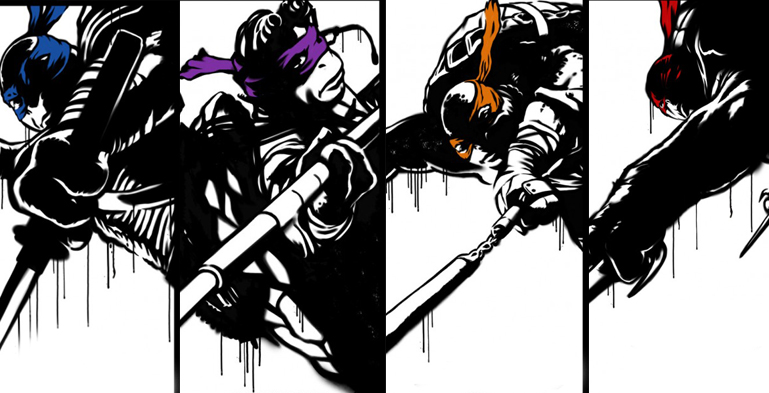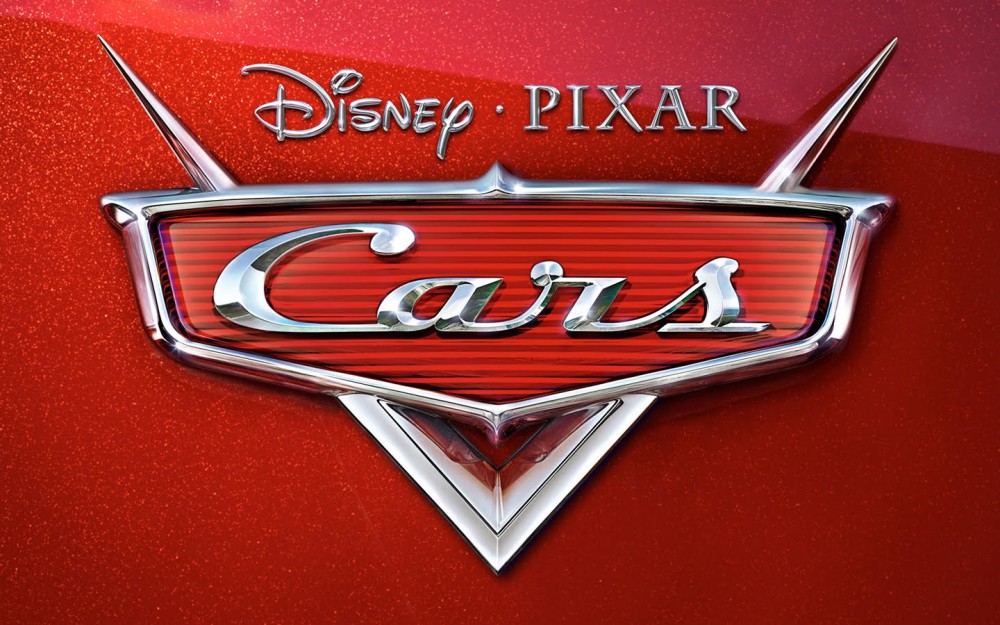‘Tis the season to be jolly! But for The Takedown, it’s business as usual. This week’s heaping black lumps of criticism are coming from yours truly. To be honest, me filling in for Eric Carr is a bit like Frosty the Snowman taking over for Jack Fucking Frost. I’ve got my work cut out for me, but I think I’m up to the challenge. And so, I hope, are you.
Looper. You’ve seen the movie, haven’t you? Probably gave it a thumbs up or two? Right, well, you might want to rethink that. Because I’m giving Looper what it really needs: the gift of knocking it down a peg or two. It is far from being the exemplary sci-fi classic people want it to be. This is a seriously flawed movie, especially where characterization is concerned. It has a solid concept, but it takes an unfortunate backseat to a number of character moments that are repeatedly shoved down our throats. And the result, friends, is not tasty.
Let’s take it down.
The Plot
Joseph Gordon-Levitt (just “Joe” in this movie) is a looper. That’s a hired gun who kills and disposes of victims sent from the future by crime syndicates because apparently we let our waste disposal problem get even more out of hand. This little nugget of exposition is revealed via Joe giving us his best Bruce Willis impression, explaining to us the important stuff since the film can’t guarantee we’ll figure it out ourselves. It’s a bit inelegant, but serviceable. It worked for Blade Runner, didn’t it? Wait, they edited that out in the director’s cut? Shit.
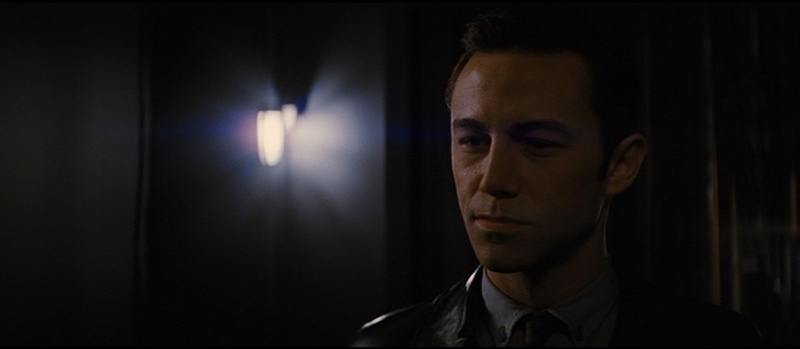
A montage in the first 10 minutes of the movie saves us the trouble of having Joe voice-over how fed up he is with his party-kill-repeat looper lifestyle. Then some Major Plot Stuff happens, and we find out a bunch of loopers are being sent back their future selves to be killed — basically the equivalent of getting fired. When a looper’s future self is sent back to be killed, this gives the present day looper 30 years to live it up before they go all Kansas and poof — just disappear. It’s like a looper severance package, and we find out it’s dished out by some figure called the Rainmaker, who’s taking over the crime syndicates.
Everyone on the same page so far? Good. I hope you took notes, because we’re about to start applying what we’ve learned. It’s the only way to make sense of the rest of the movie.
Joe’s next target is — you guessed it! — himself. Old Joe is played by the timelessly bald Bruce Willis, who knocks out Young Joe and leaves his younger self with some sage advice:
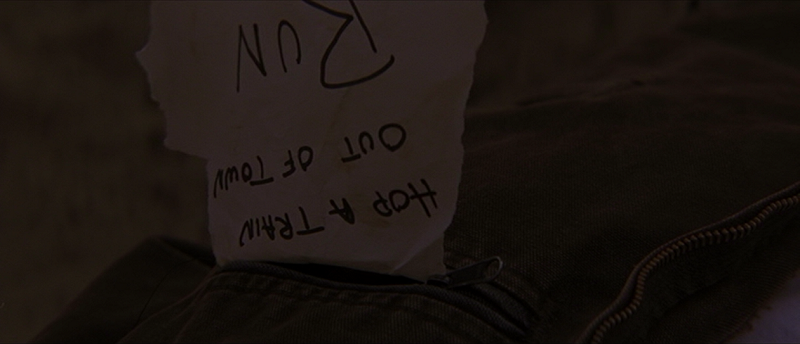
Young Joe wakes up on the run, so of course he goes back to his apartment. He doesn’t even get to explain himself when he’s attacked by his boss’s goons and falls off his escape ladder.
In some alternate timeline, we could end the movie right here. We could just assume the worst and be done with it. But that’d make for an even more inept film, and thankfully even director Rian Johnson isn’t that incompetent. Instead we see the timeline where Young Joe kills Old Joe, successfully closing his loop, and starts partying hard for the next 30 years. In Montage #2, Young Joe moves to China, does a bunch of drugs, runs out of money, turns to a life of crime again to replenish the funds, gains enough XP to evolve into Bruce Willis with an Absolutely Tragic Haircut, and eventually meets the love of his life. Forget about that last part, let’s take a good long look at Middle Joe’s ‘do here:
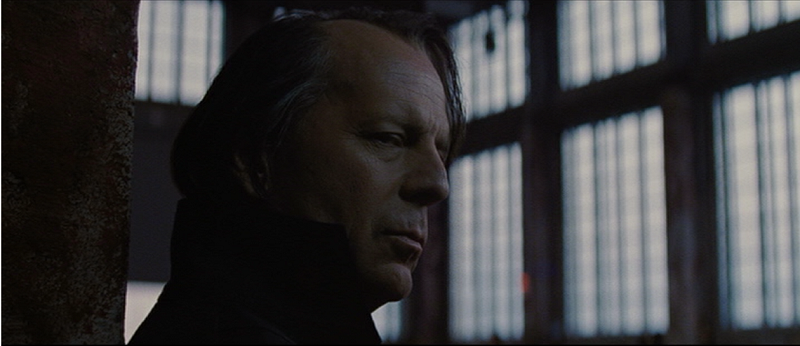
All right, all right. Old Joe does fall in love and turn from his life of crime, and he and this unnamed woman start to have some kind of normal life together. But of course, the past catches up with him. Or is it the future? Well, it’s Young Joe’s future but it’s Old Joe’s present but the gangsters are from his past but not the past-
Anyway, some gangsters under the Rainmaker’s orders (or maybe just the Future Amish) show up and take Old Joe by force to close his loop, accidentally killing his wife in the process. Old Joe goes berserk and kills them, and, now armed with a Character Motivation, hops in the time machine and blasts back to the past to change his future.
If you’ve checked out of the movie at this point, I’ve got bad news for you. This is about the point where it really goes downhill.

The short of it is Old Joe is hunting down the Rainmaker before he can fudge his life up 30 years from the present. But since it’s 30 years in the past, the Rainmaker is a little kid. So Old Joe finds out where the possible Rainmaker lives using his local library (they still have a use in the future!) and goes on a grand child-hunt. Old Joe ends up finding and killing one of the kids, and there’s a pretty pathetic scene of him doing his best to cry. Probably thinking about how he’d much rather be in yet another Die Hard.
Meanwhile, a damaged and drug-addled Young Joe heads to one of the coordinates he stole from Old Joe earlier, a farmstead where tough girl Sara (Emily Blunt) lives with her son, Cid (the Antichrist). Sara takes Young Joe in with that classic pragmatic rural mentality of “rest up and then be on your way.” But Young Joe refuses to leave because he needs to be on the watch for Old Joe, and there’s some ham-fisted attempt at character-building between them. Actually, there’s character-building for and between pretty much everybody. At all times. Until the very end of the movie. But more on that later.
While Young Joe and the other new important characters were all forging newfound friendships with each other, Old Joe was off to kill the second kid but gets captured. This gives us our big payoff action scene where Old Joe kills all the bad guys, also called a Bruce Willis’s Paycheck scene. Then the Joes meet up for the final showdown, and there’s a big set piece moment where Cid has a Tetsuo-esque psychic blowout. Sara calms him down by repeatedly telling him it’s okay and she loves him, and he calls her ‘Mom’ for the first time. That’s right, folks, even in the face of imminent death there’s still room for one more sappy character moment!
When Young Joe catches up, he realizes he can’t stop Old Joe in time from blowing Sara away to get at Cid, so he turns his gun on himself. He dies, and Old Joe blinks out of existence. There’s some more character-y stuff in the denouement, but I’d be surprised anybody still cares at this point.
The Characters
Rian Johnson is credited as saying he wanted to get all the time machine stuff explained and out of the way so the movie could focus on the characters. That’s admirable, and it’s a smart storytelling technique, and it could have worked for Looper if the characters mentioned were really something special. But they aren’t, although not for lack of trying. As I mentioned earlier, there’s a lot of character-building once Young Joe gets to Sara’s farm, and nearly all of it is completely unnecessary.

There’s character-building between Joe and Cid when Cid tries to convince Joe that Sara isn’t his mom. There’s character building between Sara and Cid when it’s revealed that Cid is actually a powerful telekinetic. There’s character-building between Joe and Cid when Cid helps Joe hide from one of Abe’s goons and we get some backstory about Joe’s mom (because I know you were just dying to fill out your character bio Bingo card). Then there’s character-building between Joe and Sara when Joe finds out that Cid is the future Rainmaker but then doesn’t kill him. Oh, wait, that’s not character-building, that’s just a regular gratuitous Hollywood hookup scene. Kudos to Johnson for having the decency not to waste our time with a proper sex scene, but since this scene takes place at an hour and a half with a half hour to go, it’s possible the scene just got cut.
The point is that the characters could work well enough without all the bloated, irrelevant extra details that were trying to make them seem more real or more important.
The Magic
The world of Looper is working with two types of magic. One of them, time travel, is integral to the plot. The other, a minor mutation for telekinetic powers, is not. The reason for this is scope.
With any kind of magic, we need to know how people use it and what people think of people who have it and how they are treated. Except the telekinetic stuff, known as TK, isn’t even interesting at its basest level because the most people can do with it, save for Mr. Future Rainmaker Cid, is float quarters. Or lighters, if you’re Sara. Yes, Sara is ousted as a TK too, but only after we already know Cid is the Rainmaker. So forget about making that a meaningful reveal. Instead it’s just another subtle-not-subtle reminder that “hey! That thing that’s a part of the setting is still here!” TK users are a minority in a sci-fi world, yet they’re never ostracized, feared, or respected. They aren’t on a spectrum that makes them engaging or interesting enough to learn more about. They’re merely set dressing, no more exciting than a wooden tree that gets swapped out when it’s time to change scenes.
The only reason telekinetic stuff is even in the movie is for the big finale with Cid. I understand the appeal; the powerful child who can’t control his own terrible strength is a resonant archetype seen in everything from X-Men to Dragon Ball Z. Hell, Akira is even credited as being an influence for the film. But in Looper that power is an excuse to build around a non-essential plot element. Visually cool? Sure. Meaningful? No.
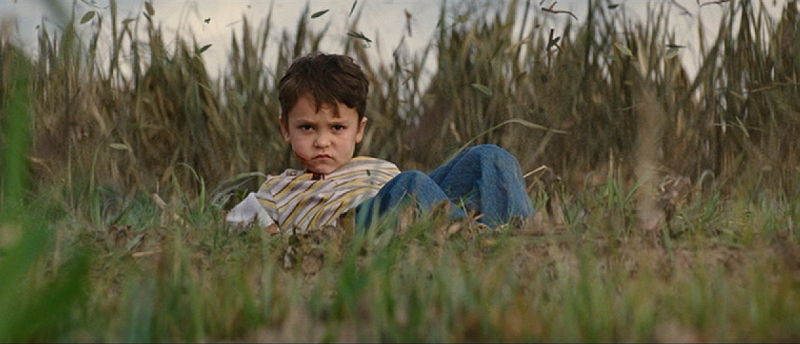
What we know about the Rainmaker in the future has no significance on whether he’s TK or not. If anything he seems more keen on using the much more effective and interesting magic system Looper is already using, time travel, to exact his revenge. Like, in his infinite telekinetic power, why the hell does he choose to close the loops the way he does? In the scene with the Future Amish, why not just have them kill Old Joe and be done with it? Young Joe would eventually die after 30 years anyway, and would do so in a way that’s most advantageous to the Rainmaker — suddenly and without warning. But I can see the reasoning behind it: “Because fuck it — time travel. We have the technology, so we’d better damn well make sure we’re using it at every opportunity.” That reasoning is the writer’s, not the character’s, which makes me hang my head in disappointment.
The inclusion of magic, and that goes for sci-fi technology, even in a science fiction film should be meaningful. The interactions that occur as a result of it being a part of the world should matter too, and that includes how the audience views it.
Take Inception for example. It’s another recent science fiction mind bender (with ‘ol Joe Gor’-Lev’ in it too) that uses its magic much differently than Looper. Instead of solely acting as a catalyst to have all these character interactions, Inception’s magic lets its characters solve problems with it directly so it could get all tricksy and mess with the audience’s heads. And it would steadily increase the learning curve over time, making the audience think.
I like that Looper didn’t choose to get all crazy with the time travel stuff, I really do. That can get really messy. But if you’re turning our focus from the cool science fiction stuff and making us look toward some other payoff, it better be worth it. And in Looper, it isn’t.
The Story Structure
The main problem with Looper is that it’s suffering from a major case of identity crisis. It wants desperately to be a Character story, except it isn’t quite sure what that means, and would really benefit if it were approached as an Event story instead. If you aren’t familiar with these parts of Orson Scott Card’s MICE quotient, I’ll explain. (Just imagine it’s voiced over by Joe.)
A Character story is when a character is dissatisfied with his life and makes strides to change it. At first this sounds an awful lot like what Joe goes through at the beginning of the movie, before Old Joe comes into his life. But he doesn’t go about changing things himself. Instead, events happen to him.
In an Event story, the world is thrown out of the natural order, and the main character takes steps to put it right or establish a new order. Both Joes’ motivations are completely in line with putting the world back in order — Young Joe wants Old Joe gone and wants back in his boss’s good graces, while Old Joe wants to prevent Cid from becoming the Rainmaker so the timeline with his wife is preserved.
Looper’s problem is that it spends way too much time trying to convince us that many of its characters are important when they don’t have to be. It tries to make us sympathize with the wrong characters, or the right characters at the wrong time. Characterization means understanding why a character would be driven to change, and we got a lot of that when we saw Joe party hardy and Old Joe’s wife get killed. What we don’t need is to hear how Joe’s boss saved Joe from the streets, or that Cid doesn’t think Sara is his mom, or that Joe’s mom sold him as a kid and did drugs and drugs are bad, mmkay.
You can introduce and build character arcs in Acts II and III — I’m not disputing that. But if those arcs have no impact on the plot and don’t make the characters stronger, they don’t need to be there. Remember, an Event story can get away with a small amount of characterization (see all the Die Hards ever). But in Looper it’s like all the character bios Johnson freewrote while brainstorming somehow got mixed up in the actual script. Backstories for backstories’ sake aren’t interesting without plot-important context, and Looper’s are exceedingly dull.
Bear in mind that Looper does have an ending worthy of an Event story — Joe establishes a new order by killing himself and preventing the tragic events that will lead to the Rainmaker — but the cost of getting there is just way too high. By the time it comes around, the film has already lost.
Conclusion
A big part of the Takedown’s appeal is getting to see crappy works get crapped on. But I think it’s even more disappointing and poignant when something has the potential to be really good but ultimately blows it in execution.
There are a lot of good working parts in Looper. I’ll admit that. But the good stuff (the premise) runs independently from the bad stuff (the characters, magic, and structure). So instead of a fine-tuned film that astounds us with its logic and amazes us with its characterization, we are subjected to halfway decent story that stumbles over itself like someone tied it’s shoelaces together. The rampant, indulgent backstory expositions seems juvenile, and undermines what little hope Looper had for minimalist yet effective characters. Had Looper had an appropriate amount of TLC (that’s Too Little Character’ in this case), we might have ended up with a stronger film. Instead the frequent missteps in character and worldbuilding are constant reminders that this isn’t the be-all end-all sci-fi it’s marketed as nor is it the gripping drama it wants to be. If time travel were real, I’d jump to Johnson’s college filmmaking class with a copy of Characters and Viewpoint. And if there are ramifications, well. That’s a fall I’d be willing to take.
It makes me fearful for the future, as Johnson is directing Star Wars Episode VIII. If Looper is any indication, we’ll be seeing characters with all the charisma and relevance of Jar Jar Binks.







